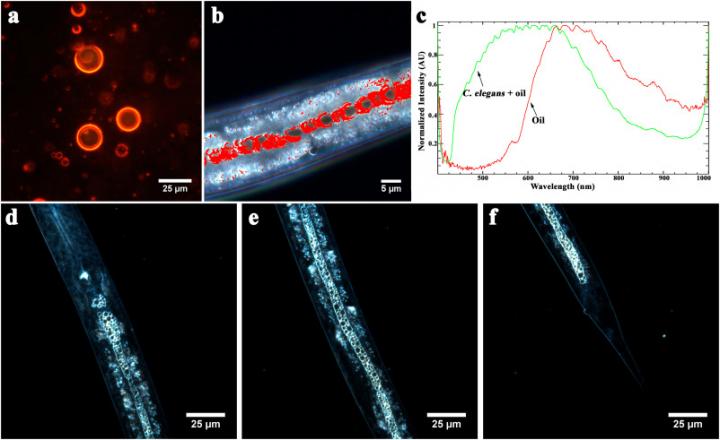Bionanotechnology Lab of Kazan Federal University works on adapting nematodes to consuming oil waste

Credit: Kazan Federal University
Bionanotechnology Lab of Kazan Federal University works on adapting nematodes to consuming oil waste.
Co-author, Chief Research Associate Rawil Fakhrullin explains, “We’ve improved existing methods of biological remediation of soils. Our lab experiment was successful, and we have a new way of delivering oil-consuming bacteria into the soil.”
The team wanted to find out whether parasitic nematodes can serve as “public transit” for marine bacteria which can consume and break down oil products into fatty acids.
“We took Caenorhabditis elegans nematodes and fed them Alcanivorax borkumensis bacteria. Nematodes have bacteria as a usual part of their diet, so there were no negative consequences for them. Furthermore, undigested bacteria changed the gut microflora of worms, which led to enhanced digestion of oil, and then left their bodies through natural ways. As another takeaway from the experiment, we found out that worms can themselves eat oil products if they are not fed anything else,” says Fakhrullin.
In the worms’ guts, oil dissipates into small particles of 5-6 micrometers, and bacteria easily break them down further. “Petroleum is a complex system, and there are many variations of it. We experimented with oil found in Tatarstan. We have yet to find out which components other types of oil produce while digested by nematodes,” adds the researcher. As he assumes, the technology may be feasible for water bodies as well as soils.
###
Media Contact
Yury Nurmeev
[email protected]
Original Source
https:/
Related Journal Article
http://dx.




